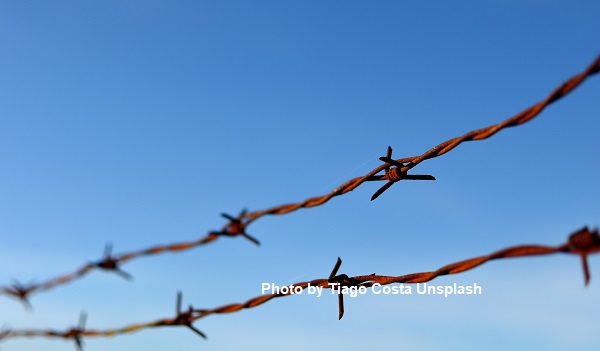On 25 August, in the latest development in the situation at the EU’s border with Belarus, the European Court of Human Rights (ECtHR) indicated interim measures in cases against Poland and Latvia covering material support for complainants at the borders between the two EU member states and Belarus.
The ECtHR decided: “without prejudice to any duties that Belarus may have under international law regarding the situation of the applicants, to apply Rule 39 and request that the Polish and Latvian authorities provide all the applicants with food, water, clothing, adequate medical care and, if possible, temporary shelter”. However, the ruling fell short of requiring access to the territory of the two states for the people affected. UNHCR and Amnesty International have expressed concern about people stuck in limbo for weeks.
The Lukashenko regime, notorious for its lack of respect for human rights, has been accused of weaponising people on the move against the EU after the latter imposed sanctions on Belarus in June; thousands of people have been caught up in the stand-off. The situation began at the Lithuanian border where more than 4,000 people have arrived in 2021 so far, more than 50 times the arrivals in 2020, with 15,000 arrivals predicted by the end of the year. It then expanded to cover Poland and Latvia. Information on the number of people involved varies: according to the Latvian Minister of Defence 10,000 people have been brought to the borders of Latvia, Lithuania and Poland. The situation for the people involved remains challenging. Violence and abuse by Belarusian border guards at the border with Lithuania has been reported.
Lithuania responded to the arrivals with a bill introducing automatic detention, limitations on the right to appeal against rejections in the asylum procedures and potential deportation during the appeal process. The Council of Europe Commissioner for Human Rights, Dunja Mijatovic stated that: “such steps would clearly pose a threat to upholding the principle of non-refoulement, as well as the right to an effective remedy. I am also worried that the newly adopted legislation would allow vulnerable persons, such as unaccompanied minors, victims of torture or victims of trafficking in human beings, to be diverted to accelerated procedures, without regard to their specific situation”. In its response to the bill the UN Refugee Agency (UNHCR) reiterates that despite the increase in arrivals: “efficient border procedures that maintain safeguards and adhere to international and EU law, including the principle of non-refoulement, are possible”. Further, Lithuania announced on 23 August the completion of a 508km, 3 to 4 metre high razor wire fence along border with Belarus. Roughly 800 people are detained under harsh conditions at the Rudninkai camp after crossing the border between Belarus and Lithuania with some reports of abuse.
In Latvia, as reaction to an increase in arrivals between 6 and 11 August, bringing the total to 343 in 2021, a state of emergency was declared along the 175 kilometer border with Belarus, allowing soldiers and police to support border guards and return people by force.
Poland which had received more than 2,000 arrivals as of mid-August, announced the closure of its border to people entering “irregularly”, a doubling of the current 900 soldiers deployed at the border, and the construction of a 150 kilometer barbed wired 2.5 meter tall fence. According to Amnesty International the announced changes to Polish laws “will make it impossible for people crossing the border irregularly to be able to claim asylum in Poland”. Polish border authorities apprehended more than 500 people between 2 and 9 August but have since stopped reporting incidents.
In early August, Poland and Lithuania appealed for a “decisive response from the European Commission, Frontex, EASO, and EU Member States and in a joint statement on 23 August the affected states of Lithuania, Latvia and Poland along with Estonia, urged UN intervention against a “hybrid attack” on the EU by Belarus. According to information from the European Commission, 37 million euro in emergency funding has been allocated to Lithuania. Diplomatic efforts to limit arrivals of people in Belarus were undertaken by the European External Action Service (EEAS). In mid-July, an operating plan was signed for the deployment of an EASO operation, which is currently being put in place. In addition, Commissioner Johansson stated that by mid-July, “Frontex staff and assets were already on their way to the border with Belarus”. A spokesperson for the agency stated that “the only operational activities Frontex has at the Polish-Belarusian border are implemented at the border crossing points,” with Polish border guards confirming that the vast majority of people are crossing outside official crossing points. Further, while Jonas Grimheden, head of the Fundamental Rights Office at Frontex has confirmed that fundamental rights monitors were being deployed at the border, the mandate of the agency does not include monitoring or investigating human rights violations beyond the agency’s own conduct.
For further information:
- ECRE’s analysis and comments on the situation will be out in the coming week
Photo by Tiago Costa on Unsplash
This article appeared in the ECRE Weekly Bulletin. You can subscribe to the Weekly Bulletin here.

